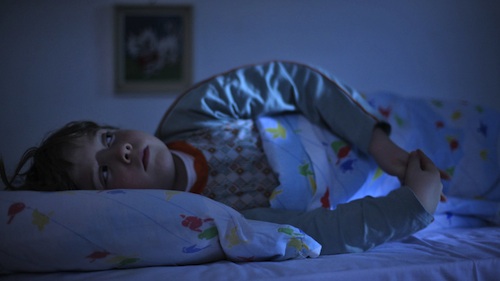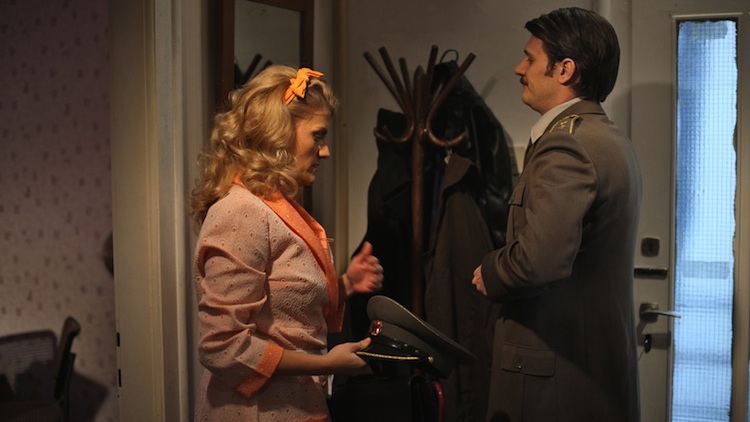By Govindini Murty. The best films about Communism nowadays are emerging from countries whose citizens have directly experienced Communist rule. One sees this in the wave of films coming out of Eastern Europe as well as in recent Chinese documentaries like High Tech, Low Life that just screened at the Tribeca Film Festival. Eastern European filmmakers, perhaps having more distance from life under the Communist boot, tend to take a farcical, absurdist approach when it comes to depicting totalitarian oppression. Croation director Slobodan Karajlovic’s narrative short Easter Eggs, which screened at the 2012 Tribeca Film Festival, follows in this tradition by showing what happens when Communist intolerance targets a family’s innocent Easter celebration.
Set in 1970s Yugoslavia, Easter Eggs depicts a mother who is determined that her young son and daughter enjoy Easter the way she did as a child – with an egg hunt, special tea, and commemoration of Christian ritual. The only problem is that her husband is a vehement Communist opposed to all signs of Christianity – even when practiced in the privacy of the home. A career-minded army officer, he is convinced that any sign of ideological deviation in his family will be disastrous for his career. As he rants at his wife when she persists in practicing Christianity: “You work against me, you work against the country.” Their child, the unseen narrator of the film, describes him as “an ingrained and incorrigible Communist.”

Nonetheless, the mother secretly arranges an Easter celebration for her children when her husband leaves for work, hiding eggs in the living room, setting up a nice tea table, and placing a cross on the sideboard. In one of the funniest moments of the film, the children look at the figure on the cross and ask if it is Tito, the communist dictator of Yugoslavia. The mother answers “It’s not Tito, it’s Jesus.”
Things then take a somewhat melodramatic turn, but Karajlovic keeps a nice balance between comedy and drama in depicting the horrifying reality of life in communist Yugoslavia. Evoking the drab colors and settings of life in the Eastern bloc, while humorously depicting the army officer father’s obsession with his mustache and his demands for heated underpants, Easter Eggs follows in the absurdist style of such favorite films of ours as the Estonian-Finnish documentary Disco and Atomic War. Like Disco, Easter Eggs shows how average citizens through small or symbolic acts of resistance can subvert apparently monolithic communist and totalitarian ideologies. Recommended for anyone interested in celebrating freedom through film.
LFM GRADE: A-
Posted on May 14th, 2012 at 1:31pm.
